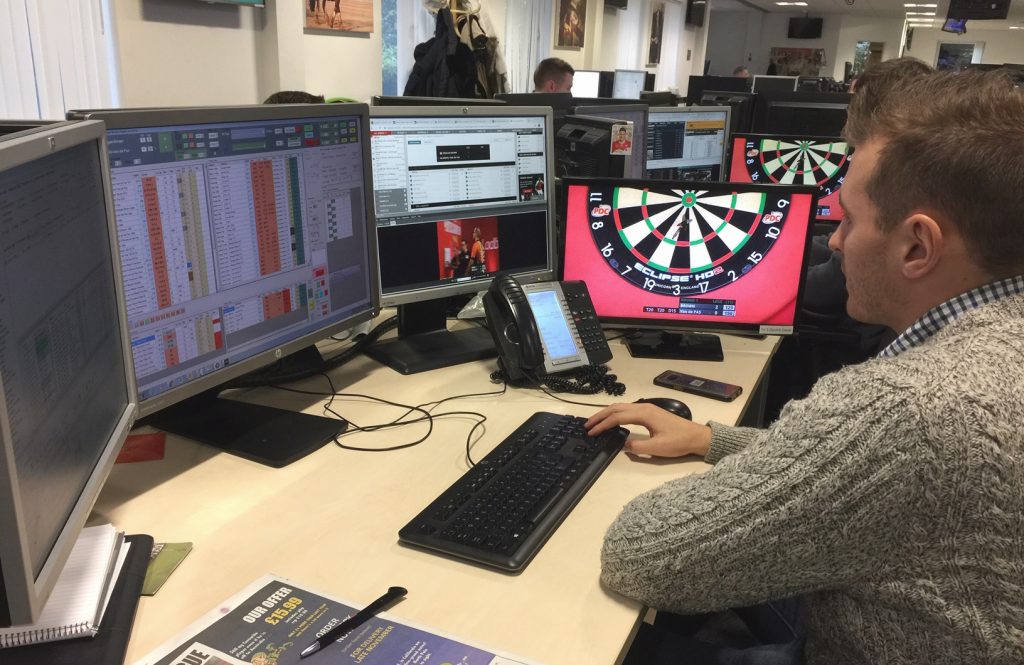Have you ever wondered how bookies work and what they do all day? We’ve always wanted to know a little bit more about how the sports betting industry works from the inside, so spoke to Gordon Parker at the sports spread betting bookie Spreadex to find out what a typical day as a sports trader looks like.
What does a typical day look like as a sports trader?
There is never really a typical day for me as shifts can vary so much day-to-day and weekend-to-weekend, covering multiple sports as I do.
But say it’s a weekend day trading rugby; I will start off getting in about an hour before my first game. I will have done all the main pricing the day before so this will give me time to check any alterations to team news, updates to weather forecasts, and any positions or liabilities we have taken in the games I am trading.
Weather is the big one to keep on top of, so if it’s a wet day, I will spend a lot of my day trying to source pictures or radars of ground or an area near to the ground before we get TV pictures through. I will then probably trade 3 to 4 matches across roughly a 7 to 8 hour period. This involves updating all our prices in-running on those games through entering what happens and changing the model for the rest of the match based on a combination of my own view and the general market.
At the end of the matches, I will settle them and deal with any queries that occasionally arise from the clients.
A weekend day trading darts can be very different as it involves not only trading games in a similar fashion to rugby but also pricing for later matches which are undecided at the start of the day.
Sometimes these can be very quick turnarounds so involve settling a semi-final, and then quickly working out your prices for the final, setting it up on our website, and trading the final straight after.
These can be the most enjoyable as there is often not time for other firms to copy prices, so you see some very big disagreements.
Top sports spread betting sites
How do you source prices?
Our betting models at Spreadex all have various inputs that drive out all of the prices which the clients see. So our job as traders is to fully understand these inputs which it is our job to set and then edit in-running to get the prices the clients receive.
I have rating sheets for all these inputs, which I am constantly updating, so I will come up with the prices I make each individual game and then compare these to the betting exchanges, other competitor spread firms and the fixed odds firms.
I will then try and stick to our prices so as to be the best price on things I differ strongly on, and largely stick to a market price for those which I have small differences.
What’s the best part of being a sports trader?
Being able to test yourself and your ratings against the market. In other jobs, it has always struck me that it can be hard to differentiate between people doing well and not.
As a sports trader, there is always the bottom line of how much money you can make and the average winning percentage you can take in for the company and yourself. On top of that, all the sport I get to watch too isn’t bad!
What about the worst?
The schedule! If you could re-arrange sport to Monday to Friday it would be the best job in the world, but sadly there are things you can’t do because you have to work most weekends.
I really miss playing rugby but it’s difficult to do at this job.
And finally, to any punters out there. What top three resources would you recommend getting great data and analysis for betting.
For data on individual sports, dartsdatabase.co.uk has an excellent amount of data for darts matches played on and off stage, while scrum.com has excellent data for appearances, tries, minutes played etc. on rugby.
For viewing historical prices oddsportal.com can be very useful, especially if you are backtesting a model’s performance to old prices.
I would say though that it is most important to make a reliable bet sheet where you can see your profitability as a trader that can split it down into sport and markets.
Once you do this you can start to see (given a good sample size) where any edge you have maybe and where you should start putting more of your money into.
Gordon Parker is a sports trader at Spreadex. You can get started as well by clicking the button below.















